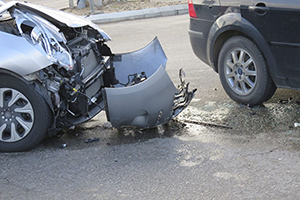
As we covered in our previous article, sometimes the best way forward is to file a lawsuit. Today, we will discuss what happens if that case is filed in one of Virginia’s 134 General District Courts.
Why Are We Filing A Lawsuit?
This decision may be made either because the other party is denying liability for your car accident, or because they are minimizing your medical damages, and not offering you fair compensation. When that happens, a competent attorney will then recommend proceeding to suit.
Going into litigation can be a judgment call, though. If, for example, the insurance company wants to settle for $20,000, and you are adamant that you won’t take a penny under $21,000, then you must be wary of diminishing returns (spending more, to get less). Lawsuits take time -and money – and even though the judgment may be more, the ultimate recovery (that is, the money into your pocket) may be lower. This is why Blaszkow Legal always reviews your options with you!
What Can We Get in the GDC?
The General District Court, or GDC, has a jurisdictional limit of $50,000 for personal injury cases. This amount reflects the ad damnum, or what the Plaintiff (person bringing the case) is asking for. This limit used to be only $25,000, until the Legislature increased the amount in July 2021.
In addition to the $50,000, a judgment may include interest, as well as pre-judgment interest, as authorized by statute.
How It Works
We begin the GDC process by filing a Warrant in Debt. This is the initiating pleading, or paper filed with the Court. The name “Warrant” sounds scary, but it is not. It harkens back to the old days of English Common Law. Before filing the Warrant, however, the attorney must contact the Clerk of the Court to set a Return Day.
Return Days are dates on the Court’s calendar when the matter of Plaintiff v. Defendant will first be heard. Think of this as a mere scheduling conference, when dates for specific pleadings are set. Return Days are often within 60 days of filing the Warrant in Debt, but this of course varies from Court to Court.
The Warrant in Debt is then handed over to the Sheriff’s Office by the Clerk of the Court for service on the Defendant.
Once the Warrant in Debt is served, the Return Day comes. Attorneys for both parties, or the Defendant himself, if unrepresented, will go before the Court. The Court will set dates for two important legal documents to be filed: a Bill of Particulars, and an Answer/Grounds of Defense. Most importantly, the Court will determine a Trial Date.
What Are These Pleadings?
The Bill of Particulars is a pleading which sets out, line by line, what the Plaintiff alleges happened to cause his or her injuries, and how he or she was affected by the Defendant’s negligence. The Warrant in Debt is a basic form, with no room for this sort of explanation. Many consider this document the Complaint, which it is, really (except for Virginia’s procedural quirks).
The Defendant then must file an Answer and Grounds of Defense to the Plaintiff’s Bill of Particulars. In this document, the Defendant gets to refute, line by line, each and every allegation made by the Plaintiff. Competent defense attorneys also list their Affirmative Defenses – because if not plead, they may be waived at trial. This is akin to a legal “speak now, or forever hold your peace” concept.
Continuation
We will discuss the run-up to trial, and trial itself in Anatomy of a Case, Part 3. Stay tuned!
Until the next segment, if you have any questions about Virginia’s legal system, or have been in a car accident yourself, call Blaszkow Legal today – 703-879-5910
Increase of Limits: https://lis.virginia.gov/cgi-bin/legp604.exe?212+sum+SB1108
Jurisdiction of GDC: https://law.lis.virginia.gov/vacode/title16.1/chapter6/section16.1-77/
Pre-Judgment Interest: https://law.lis.virginia.gov/vacode/title6.2/chapter3/section6.2-302





